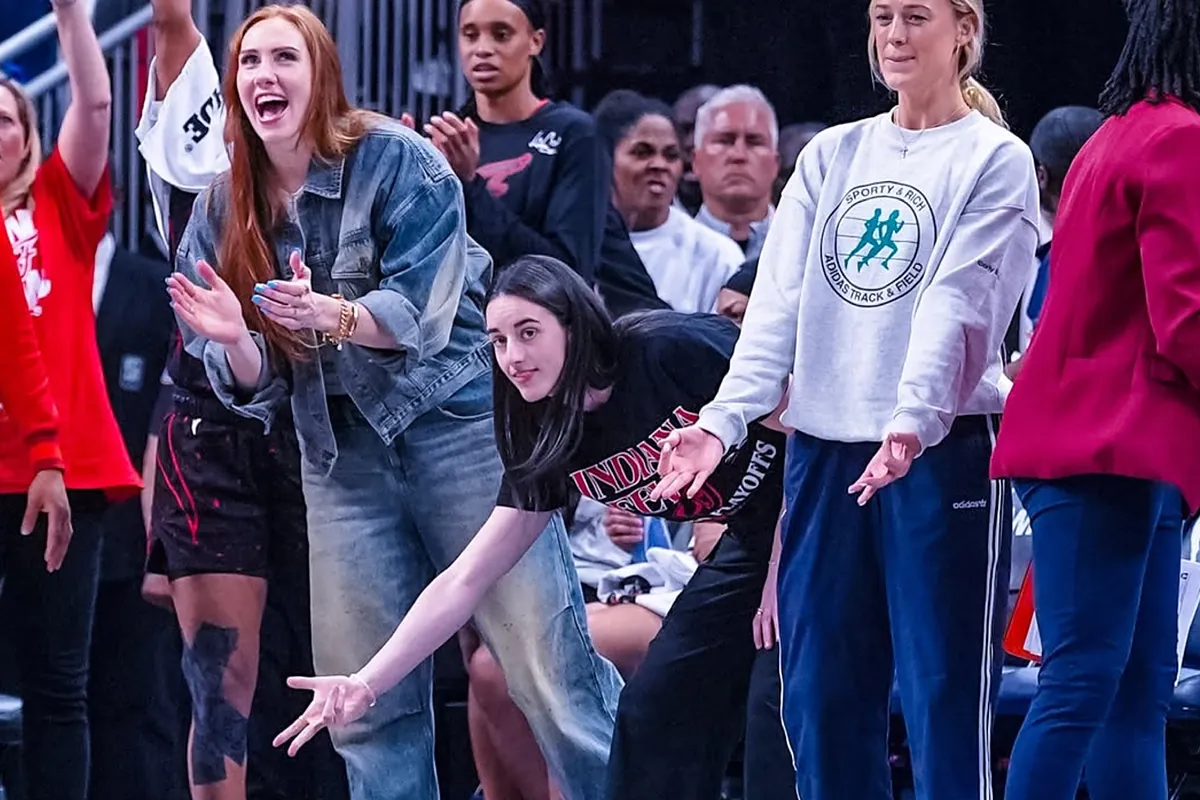The Indiana Fever’s journey through the WNBA Playoffs has been fraught with both excitement and controversy. As they battle for a spot in the Finals against the Las Vegas Aces, a social media post by Chloe Bibby ignited a debate surrounding AI-generated art and its potential implications. This article delves into the incident, Bibby’s subsequent apology, and the broader context of the Fever’s playoff aspirations. It also will touch on the significance of cultural sensitivity in the digital age.
The incident involving Chloe Bibby underscores the importance of understanding cultural nuances in today’s interconnected world. As athletes and public figures navigate social media, awareness of potential misinterpretations becomes paramount. The Fever’s performance in the playoffs serves as a backdrop to this incident, highlighting the team’s resilience amidst challenges both on and off the court.
Chloe Bibby’s AI Image Post
Following Game 3 against the Atlanta Dream, Chloe Bibby shared an AI-generated image on her Instagram account featuring herself, Sophie Cunningham, Caitlin Clark, and a police officer. This post referenced a moment during the game when the injured players were prevented from checking on teammate Odyssey Sims by a police officer. While Bibby intended to share a lighthearted moment, the image sparked controversy due to its AI-generated nature and potential racial undertones.
The post quickly garnered attention, with many users questioning the ethics of AI-generated art and its impact on human artists. Additionally, concerns were raised about the image’s racial connotations, prompting a broader discussion about representation and sensitivity. Bibby’s initial caption, ‘Bench MOB things,’ further fueled the debate, as some felt it trivialized the underlying issues.
Bibby’s Apology and Post Removal
In response to the backlash, Chloe Bibby promptly removed the controversial image from her Instagram account. She issued a sincere apology via her Instagram stories, taking full responsibility for her actions and acknowledging the need for greater understanding. Bibby stated, ‘Really sorry if I offended anyone with my post. That’s not who I am and I need to do a better job at understanding the racial undertones and issues within this country.’
Bibby further committed to self-education, adding, ‘No excuse I need to educate myself in this area and I will.’ Her swift response and willingness to learn were acknowledged by many as a positive step towards reconciliation. This incident serves as a reminder of the continuous learning required to navigate the complexities of cultural sensitivity in the digital age.
Fever’s Playoff Outlook
Amidst the social media controversy, the Indiana Fever is focused on their playoff journey. They face a critical Game 4 against the Las Vegas Aces, with their season hanging in the balance. The team will be without key players, including Damiris Dantas, Sydney Colson, Aari McDonald, Sophie Cunningham, Caitlin Clark, and Chloe Bibby, due to injuries and other circumstances. Dantas’s potential return from concussion protocol remains uncertain.
A loss in Game 4 would eliminate the Fever from the Playoffs, while a victory would force a decisive Game 5 in Las Vegas. The team’s ability to overcome adversity, both on and off the court, will be crucial to their success. Coach Stephanie White’s leadership and the players’ resilience will be tested as they strive to keep their playoff hopes alive.
The Ethics of AI-Generated Art
The controversy surrounding Bibby’s post has reignited the discussion about the ethics of AI-generated art. As AI technology advances, questions arise regarding authorship, originality, and cultural sensitivity. Critics argue that AI-generated art can devalue human creativity and perpetuate biases present in the data it is trained on. Supporters, on the other hand, see AI as a tool for artistic expression and innovation.
The incident highlights the need for greater awareness and ethical guidelines surrounding the use of AI in creative endeavors. Artists, content creators, and social media users must consider the potential implications of AI-generated content and strive to use it responsibly. The ongoing debate about AI ethics is likely to continue as the technology evolves and becomes more integrated into various aspects of society.
Importance of Cultural Sensitivity
Bibby’s apology underscores the importance of cultural sensitivity in today’s interconnected world. Social media platforms have the power to amplify voices and connect people from diverse backgrounds. However, they also present the risk of misinterpretations and unintended offense. Public figures, in particular, must be mindful of the potential impact of their words and actions on a global audience.
Cultural sensitivity requires continuous learning, empathy, and a willingness to engage in open dialogue. It involves recognizing and respecting the values, beliefs, and customs of different cultures. By fostering cultural sensitivity, individuals and organizations can promote inclusivity, understanding, and positive social change.
Conclusion
The Chloe Bibby incident serves as a microcosm of the larger challenges and opportunities present in the digital age. It highlights the importance of cultural sensitivity, ethical considerations surrounding AI technology, and the need for continuous learning and growth. As the Indiana Fever navigates the WNBA Playoffs, the team’s ability to overcome adversity and unite as a team will be essential.
Ultimately, the incident underscores the responsibility of individuals, especially those in the public eye, to be mindful of their actions and words. By promoting awareness, empathy, and open dialogue, we can foster a more inclusive and understanding society. The lessons learned from this incident will undoubtedly shape future conversations about cultural sensitivity and the ethical use of AI in creative expression.

Leave a Reply